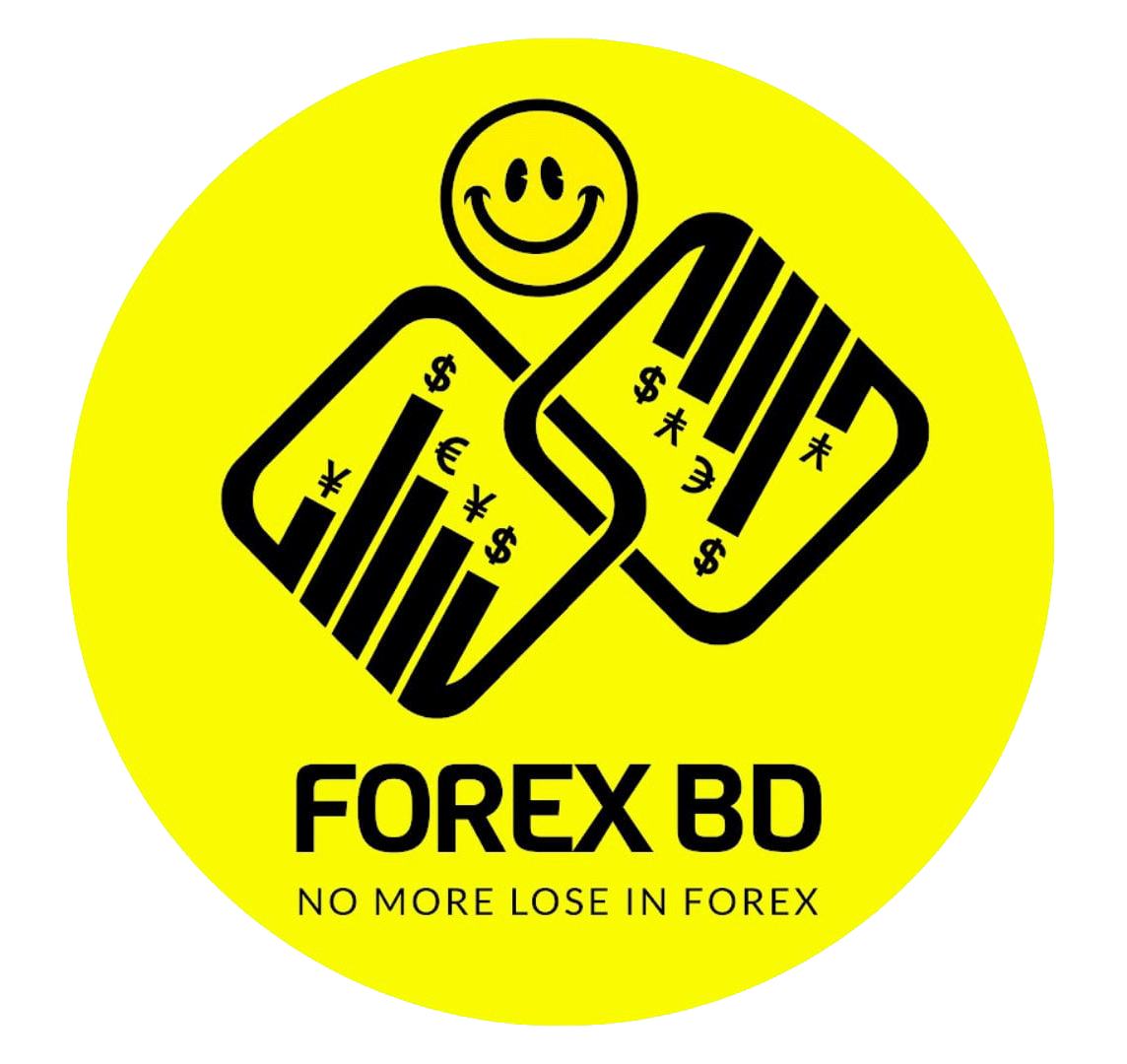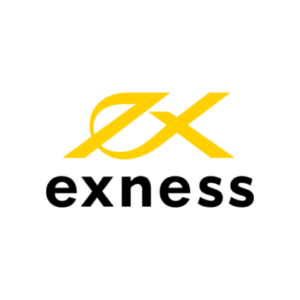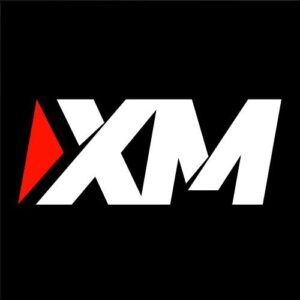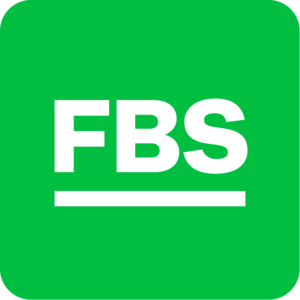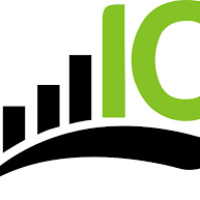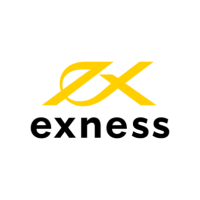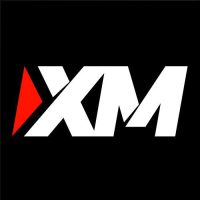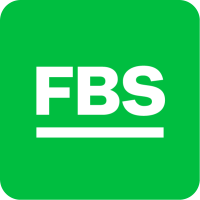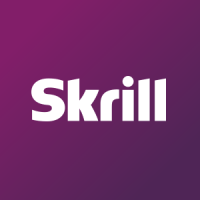Are you a beginner looking to start trading in the Forex market? Forex trading can be an exciting and profitable endeavor, but it can also be complex and overwhelming. In this article, we will provide you with a step-by-step guide on how to start trading as a beginner in Forex.
Table of Contents
- Understanding Forex Trading
- Why Trade Forex?
- Developing a Trading Plan
- Choosing a Forex Broker
- Opening a Forex Trading Account
- Understanding Forex Trading Strategies
- Analyzing the Market
- Understanding Technical Analysis
- Understanding Fundamental Analysis
- Utilizing Forex Trading Tools
- Managing Risk
- Starting to Trade
- Monitoring and Adjusting Your Trades
- Learning and Improving Your Skills
- Conclusion
1. Understanding Forex Trading
Forex, also known as foreign exchange or currency trading, is the buying and selling of currencies in the global market. The Forex market is the largest and most liquid financial market in the world, with an average daily trading volume of over $5 trillion. Trading takes place 24 hours a day, five days a week, and is conducted through an electronic network of banks, institutions, and individual traders.
2. Why Trade Forex?
There are several benefits to trading Forex, including:
- High liquidity: With such high trading volumes, the Forex market is highly liquid, meaning you can easily buy and sell currencies at any time.
- Low barriers to entry: You don’t need a lot of capital to start trading Forex, and many brokers offer mini or micro accounts for beginners.
- Flexibility: You can trade Forex from anywhere in the world, as long as you have an internet connection.
- Opportunity for profit: Forex trading can be highly profitable, as long as you have a solid trading plan and manage your risk effectively.
3. Developing a Trading Plan
Before you start trading Forex, it’s important to develop a trading plan. This plan should outline your goals, risk tolerance, trading strategy, and money management rules. Your trading plan should also include a set of rules for entering and exiting trades.
4. Choosing a Forex Broker
Choosing the right Forex broker is critical to your success as a trader. You should look for a broker that is regulated, has a good reputation, offers competitive spreads and commissions, and provides a user-friendly trading platform.
5. Opening a Forex Trading Account
Once you have chosen a Forex broker, you can open a trading account. Most brokers offer several different types of accounts, including demo accounts for practicing and testing your trading strategies.
6. Understanding Forex Trading Strategies
There are many different Forex trading strategies that you can use, including:
- Trend following: This strategy involves identifying and following trends in the market.
- Range trading: This strategy involves identifying and trading within a range-bound market.
- Breakout trading: This strategy involves identifying key levels of support and resistance and trading the breakouts.
7. Analyzing the Market
To trade Forex successfully, you need to be able to analyze the market. There are two main types of market analysis: technical analysis and fundamental analysis.
8. Understanding Technical Analysis
Technical analysis involves analyzing price charts and using technical indicators to identify trading opportunities. Some common technical indicators include moving averages, Bollinger Bands, and Relative Strength Index (RSI).
9. Understanding Fundamental Analysis
Fundamental analysis involves analyzing economic, financial, and other qualitative and quantitative factors to determine the value of a currency. Some of the key factors that can affect a currency’s value include interest rates, GDP, inflation, and political events.
10. Utilizing Forex Trading Tools
To increase your chances of success as a beginner in Forex trading, you can utilize various Forex trading tools. These tools can help you analyze the markets and make more informed trading decisions. Some of the most popular Forex trading tools include:
Economic Calendar: This tool helps you stay up-to-date with important economic events and announcements that can affect the markets.
Technical Analysis Tools: These tools help you analyze market trends, identify support and resistance levels, and make predictions about future price movements.
Trading Signals: Trading signals provide you with buy and sell signals based on market analysis, helping you make more profitable trades.
Forex Robots: Forex robots are automated trading systems that can execute trades on your behalf based on pre-programmed algorithms.
Managing risk is a crucial part of Forex trading. You should never risk more than you can afford to lose, and you should always have a stop loss in place to limit your losses. It’s also important to diversify your trading portfolio and avoid putting all your eggs in one basket.
12. Starting to Trade
Once you have developed a trading plan, chosen a broker, and opened a trading account, you can start placing trades. Remember to stick to your trading plan and only risk a small percentage of your trading capital on each trade.
13. Monitoring and Adjusting Your Trades
As a Forex trader, you should always be monitoring your trades and adjusting your positions as needed. This may involve moving your stop loss or taking profits early if the market moves against you.
14. Learning and Improving Your Skills
Forex trading is a skill that takes time and practice to develop. As a beginner, you should focus on learning as much as you can about the markets and different trading strategies. You should also consider joining a trading community or taking a Forex trading course to improve your skills.
15. Conclusion
Starting to trade Forex as a beginner can be a daunting task, but by following the steps outlined in this article, you can get started on the right track. Remember to develop a solid trading plan, choose a reputable broker, and always manage your risk. With time and practice, you can become a successful Forex trader.
FAQs
- How much money do I need to start trading Forex as a beginner?
- You don’t need a lot of capital to start trading Forex. Many brokers offer mini or micro accounts for beginners, which require as little as $50 or $100 to open.
- Is Forex trading risky?
- Yes, Forex trading can be risky. However, by developing a solid trading plan and managing your risk effectively, you can minimize your losses and maximize your profits.
- Do I need to have a background in finance to trade Forex?
- No, you don’t need a background in finance to trade Forex. However, it’s important to educate yourself about the markets and different trading strategies before you start trading.
- Can I trade Forex from anywhere in the world?
- Yes, you can trade Forex from anywhere in the world, as long as you have an internet connection.
- How can I improve my Forex trading skills?
- You can improve your Forex trading skills by learning as much as you can about the markets and different trading strategies, joining a trading community, or taking a Forex trading course.
Name
Details
Rating
Regulation: CySEC, FCA, DFSA, FSCA, FSA, CMA
Founded: 2008
Founders: Petr Valov, Igor Lychagov
Year Founded : 2008
Deposit Methods: VISA, MasterCard, Neteller, Skrill, WM, PM, Crypto (MORE)
Leverage: 1:30 | 1:500
Regulation: CySEC, FCA, DFSA, FSCA, FSA.
Min. Deposit: 5 US$
Min. Withdraw : 5 US$
HQ: Sydney, Australia
Platforms: MT4, MT5, ctrader, web trading
Found in: January 30, 2007
Deposit Methods: Bank Wire (BankTransfer), VISA, MasterCard, Neteller, Skrill, WM, PM, Crypto
Year Founded : 2010
Cryptocurrencies:
 Yes
YesDeposit Methods: Local Deposit, Bank Wire (BankTransfer), VISA, MasterCard, Neteller, Skrill, WM, PM, Crypto, USDT
Year Founded : 2010
Cryptocurrencies: (5+) Bitcoin, Litecoin, Ethereum
Deposit Methods: Local Deposit, Bank Wire (BankTransfer), VISA, MasterCard, Neteller, Skrill, WM, PM, Crypto, USDT (MORE)
Year Founded : 2009
Cryptocurrencies:



Deposit Methods: Bank Wire (BankTransfer/SWIFT), VISA, MasterCard, Alipay, Bitcoin, Bitcoin Cash, Boleto, Ether/Ethereum, Litecoin, Local Bank Deposits, M-Pesa, Mobile Money, Monero, PerfectMoney, Ripple, WebMoney
Year Founded : 2009
Cryptocurrencies:



Deposit Methods: Local Deposit, Bank Wire (BankTransfer), VISA, MasterCard, Neteller, Skrill, WM, PM, Crypto, USDT
Year Founded : 2009
Cryptocurrencies:



Deposit Methods: Bank Wire (BankTransfer/SWIFT), VISA, MasterCard, Alipay, Bitcoin, Bitcoin Cash, Boleto, Ether/Ethereum, Litecoin, Local Bank Deposits, Mobile Money, PerfectMoney, WebMoney, USDT
Year Founded : 2011
Cryptocurrencies: (25+) Bitcoin, Litecoin, Ethereum
Deposit Methods: Bank Deposit, VISA, awepay, Bitcoin, FasaPay, Local Bank Deposits, Local Bank Transfers, Neteller, paytm, Skrill, UnionPay, USDT
Leverage: 1:20 | 1:500
Regulation: CySEC, FCA, DFSA, FSCA, FSA.
Min. Deposit: 50 US$
Min. Withdraw : 50 US$
HQ: Australia, Cyprus, and the UK.
Platforms: MT4, cTrader, web trading
EAs/Robots: ✅ Yes | News Trading: ✅ Yes | Scalping: ✅ Yes
Cryptocurrencies: 20+) Bitcoin, Litecoin, Ethereum
Deposit Methods: Local Deposit, Bank Wire (BankTransfer), VISA, MasterCard, Neteller, Skrill, Crypto. USDT
Leverage: 1:20 | 1:500
Regulation: CySEC, FCA, DFSA, FSCA, FSA.
Min. Deposit: 100 US$
Min. Withdraw : 100 US$
HQ: Cyprus, the UK, Australia, and the United States.
Platforms: MT4, cTrader, web trading
EAs/Robots: ✅ Yes | News Trading: ✅ Yes | Scalping: ✅ Yes
Cryptocurrencies: 20+) Bitcoin, Litecoin, Ethereum
Deposit Methods: Local Deposit, Bank Wire (BankTransfer), VISA, MasterCard, Neteller, Skrill, Crypto. USDT
Leverage: 1:20 | 1:500
Regulation: CySEC, FCA, DFSA, FSCA, FSA.
Min. Deposit: 50 US$
Min. Withdraw : 50 US$
HQ: Australia, Cyprus, and the UK.
Platforms: MT4, cTrader, web trading
EAs/Robots: ✅ Yes | News Trading: ✅ Yes | Scalping: ✅ Yes
Cryptocurrencies: 20+) Bitcoin, Litecoin, Ethereum
Deposit Methods: Local Deposit, Bank Wire (BankTransfer), VISA, MasterCard, Neteller, Skrill, Crypto. USDT
Year Founded : 2010
Cryptocurrencies:



Deposit Methods: Local Deposit, Bank Wire (BankTransfer), VISA, MasterCard, Neteller, Skrill, WM, PM, Crypto, USDT
A Forex broker is a financial services company that provides traders with access to the foreign exchange market. The primary function of a Forex broker is to facilitate the buying and selling of currencies by acting as an intermediary between the trader and the market ( Forex BD / BD Forex / ForexBD / ForexBDLTD / Forex bd LTD / @forexbd )..
Forex brokers offer traders a variety of services, including trading platforms, market analysis, and educational resources. They also provide access to leverage, which allows traders to control larger positions with a smaller amount of capital.
Forex brokers can operate in different ways, such as market makers, which set their own bid and ask prices and take the opposite side of their clients’ trades, or as agency brokers, which pass their clients’ orders directly to the market without any intervention.
Choosing a reliable and trustworthy Forex broker is important for traders to ensure that they receive fair and transparent pricing, access to a range of financial instruments, and adequate customer support ( Forex BD / BD Forex / ForexBD / ForexBDLTD / Forex bd LTD / @forexbd )..
Forex brokers play an important role in the foreign exchange market by providing liquidity and enabling traders to participate in the market with ease. Forex brokers offer a wide range of services and tools to traders, including:
Trading Platforms: Forex brokers provide traders with access to trading platforms that allow them to place trades, analyze the market, and manage their trading accounts.
Market Analysis: Forex brokers offer traders access to market analysis, including news, research, and economic data. This can help traders make informed decisions about when to enter or exit the market.
Educational Resources: Forex brokers often provide educational resources, such as webinars, videos, and tutorials, to help traders improve their trading skills and knowledge.
Leverage: Forex brokers offer traders access to leverage, which allows traders to control larger positions with a smaller amount of capital. However, it’s important to note that leverage can increase both potential profits and losses.
Customer Support: Forex brokers provide customer support to help traders with any questions or issues they may have ( Forex BD / BD Forex / ForexBD / ForexBDLTD / Forex bd LTD / @forexbd )..
When choosing a Forex broker, traders should consider factors such as the broker’s reputation, regulation, trading conditions, fees and commissions, and customer support. It’s important to choose a broker that is reliable, transparent, and offers competitive pricing and trading conditions.
Forex brokers provide traders with access to various types of trading platforms, each with its own unique features and advantages. Here are some of the most common types of Forex broker platforms:
MetaTrader 4 (MT4): MT4 is one of the most popular Forex trading platforms, used by millions of traders worldwide. It is known for its user-friendly interface, extensive charting tools, and support for automated trading through Expert Advisors (EAs) ( Forex BD / BD Forex / ForexBD / ForexBDLTD / Forex bd LTD / @forexbd )..
MetaTrader 5 (MT5): MT5 is the newer version of MT4 and offers additional features and improvements, such as more advanced charting tools, additional order types, and support for more financial instruments.
cTrader: cTrader is a trading platform that offers advanced charting tools, support for automated trading, and fast order execution. It is known for its user-friendly interface and customization options.
WebTrader: WebTrader is a browser-based trading platform that allows traders to access the market from any device with an internet connection. It is a popular choice for traders who prefer a simple and easy-to-use platform ( Forex BD / BD Forex / ForexBD / ForexBDLTD / Forex bd LTD / @forexbd )..
Mobile Trading Platforms: Forex brokers also offer mobile trading platforms that allow traders to access the market and manage their positions from their smartphones or tablets. These platforms typically offer a range of features, including real-time quotes, charts, and news updates.
When choosing a Forex broker platform, it’s important to consider factors such as ease of use, charting tools, order types, automated trading options, customization options, and compatibility with your trading style and strategy. Ultimately, the best platform for you will depend on your individual needs and preferences as a trader.
Forex brokers can be categorized into different types based on their business model and the services they offer to their clients. Here are some of the most common types of Forex brokers ( Forex BD / BD Forex / ForexBD / ForexBDLTD / Forex bd LTD / @forexbd ). :
Dealing Desk (DD) Brokers: Dealing Desk brokers, also known as market makers, act as counterparties to their clients’ trades. They provide liquidity to the market by taking the opposite side of their clients’ trades, and may also offer fixed spreads, guaranteed stop-loss orders, and other risk management tools.
No Dealing Desk (NDD) Brokers: No Dealing Desk brokers do not act as counterparties to their clients’ trades, but instead route their orders directly to liquidity providers, such as banks, financial institutions, and other brokers. NDD brokers typically offer variable spreads and faster order execution speeds than DD brokers.
Electronic Communication Network (ECN) Brokers: ECN brokers are similar to NDD brokers, but instead of routing orders to a single liquidity provider, they connect their clients to a network of liquidity providers, which compete to offer the best bid and ask prices. ECN brokers typically charge a commission for their services, but offer some of the tightest spreads and fastest order execution speeds in the market.
Straight Through Processing (STP) Brokers: STP brokers are similar to NDD brokers, but instead of routing orders directly to liquidity providers, they use automated systems to execute orders based on pre-defined trading rules. STP brokers may offer variable or fixed spreads, and may charge a commission or markup on their services.
Hybrid Brokers: Hybrid brokers combine elements of different business models, such as acting as both a market maker and an ECN broker, or offering both fixed and variable spreads. Hybrid brokers may offer a range of services and account types to meet the needs of different types of traders.
When choosing a Forex broker, it’s important to consider the broker’s business model and the services they offer, as well as their reputation, regulation, and customer support. The best broker for you will depend on your individual needs and trading style, as well as the trading conditions and fees offered by the broker.
Forex trading is a popular financial activity that involves buying and selling currencies to profit from the fluctuations in exchange rates. As with any financial activity, it is essential to choose a reputable and regulated broker to ensure the safety of your funds and a fair trading environment. In this article, we will discuss some of the top regulated forex broker houses.
Online forex trading payment methods refer to the various payment options available for forex traders to deposit or withdraw funds from their trading accounts. In the world of forex trading, payment methods play a vital role in facilitating smooth transactions, and it is important to choose a secure and reliable payment method that suits your needs.
Like, Share & Subscribe to Our Official Sites
Contact with Us :
Copyright © 2023 Forex BD
Risk Warning: Trading on financial markets carries risks. Contracts for Difference (‘CFDs’) are complex financial products that are traded on margin. Trading CFDs carries a high level of risk since leverage can work both to your advantage and disadvantage. As a result, CFDs may not be suitable for all investors because you may lose all your invested capital. You should not risk more than you are prepared to lose. Before deciding to trade, you need to ensure that you understand the risks involved and take into account your investment objectives and level of experience.
Disclaimer : Forexbd.ltd is not encouraging anyone to do forex/stock trading, as there are investments and financial risks involved. ForexBD channel or videos are educational and informative. Before deciding to invest in the forex market, you should carefully consider your investment objectives, level of experience, and risk appetite.
#ForexTrading #ForexMarket #ForexBroker #ForexSignals #ForexAnalysis #ForexEducation #ForexPlatform #ForexTools #ForexStrategy #ForexTradingTips #ForexInvesting #ForexNews #CurrencyTrading #OnlineTrading #TradingSoftware #TechnicalAnalysis #FundamentalAnalysis #RiskManagement #MarketResearch #TradingCommunity #ForexTradingSignals #ForexTradingSystem #ForexMarketAnalysis #ForexMarketNews #ForexMarketResearch #ForexTradingStrategies #ForexTrader #ForexTradingSoftware #ForexTradingCourse #ForexTradingForBeginners #ForexTradingPlatform #ForexTradingEducation #ForexTradingAcademy #ForexTradingOnline #ForexTradingCommunity #ForexTradingCharts #ForexTradingIndicators #ForexTradingAccount #ForexTradingCoach #ForexTradingRobot
